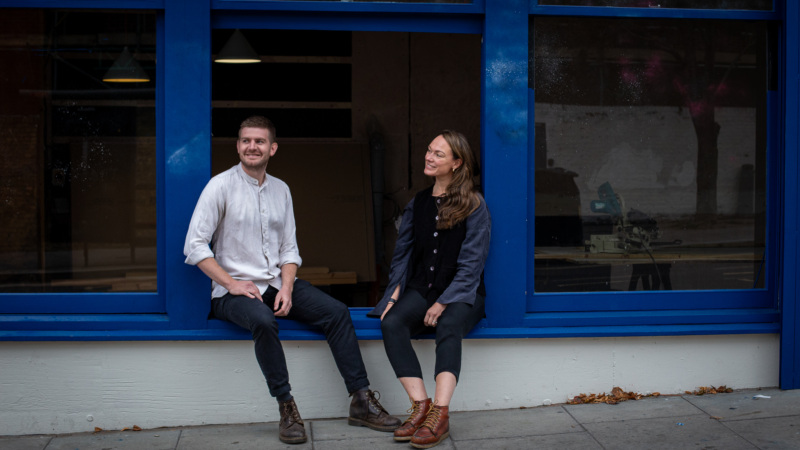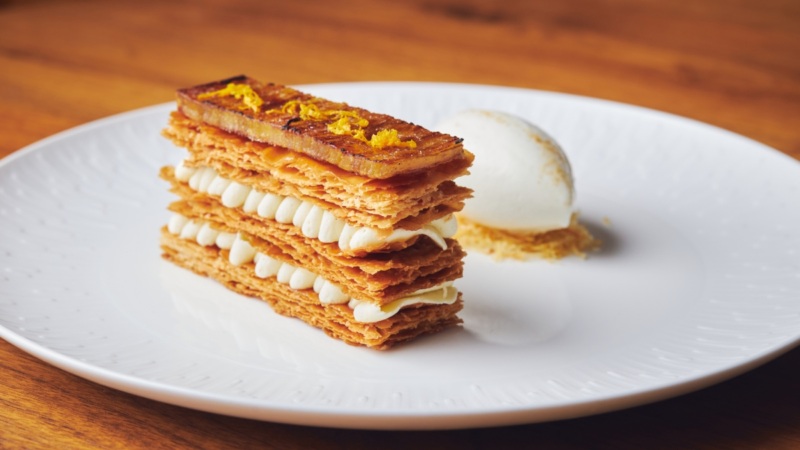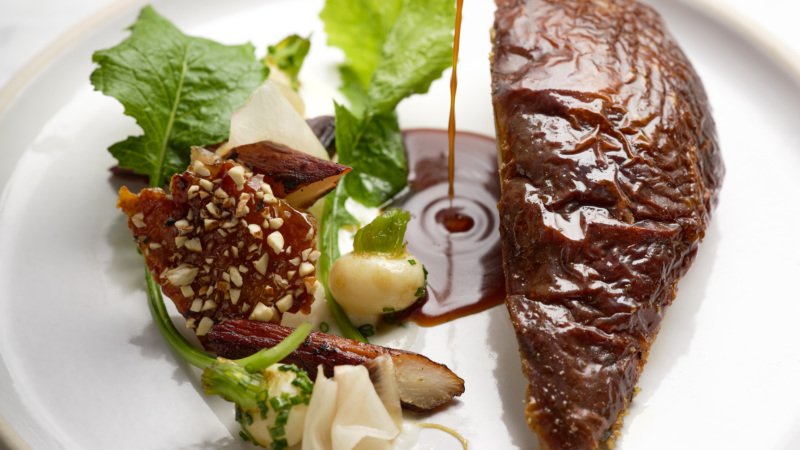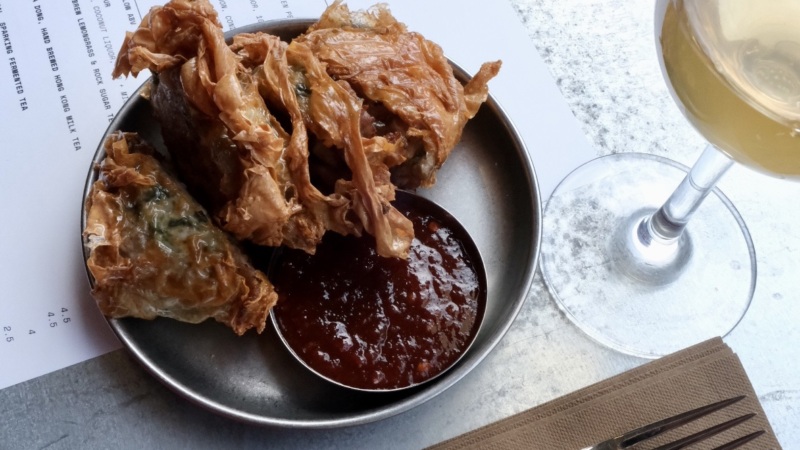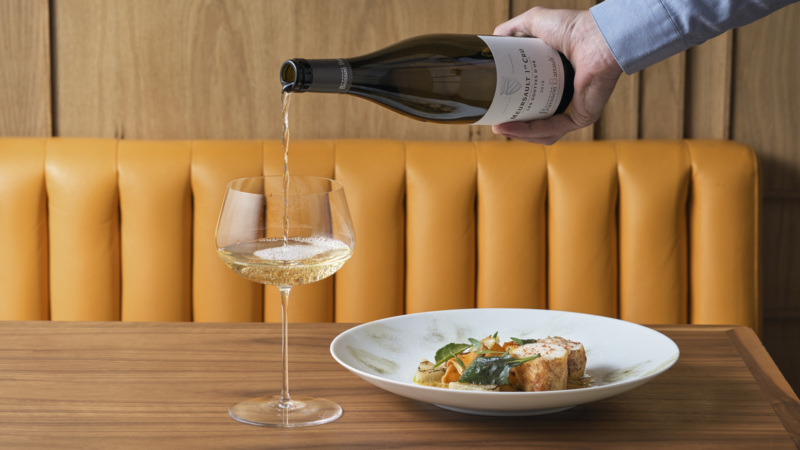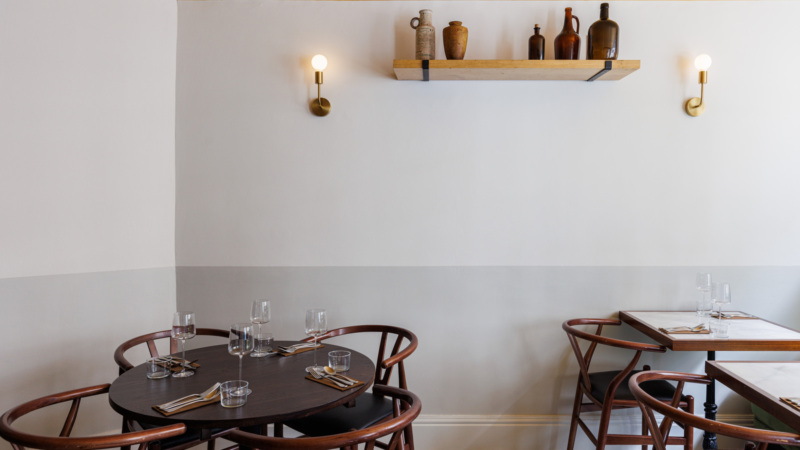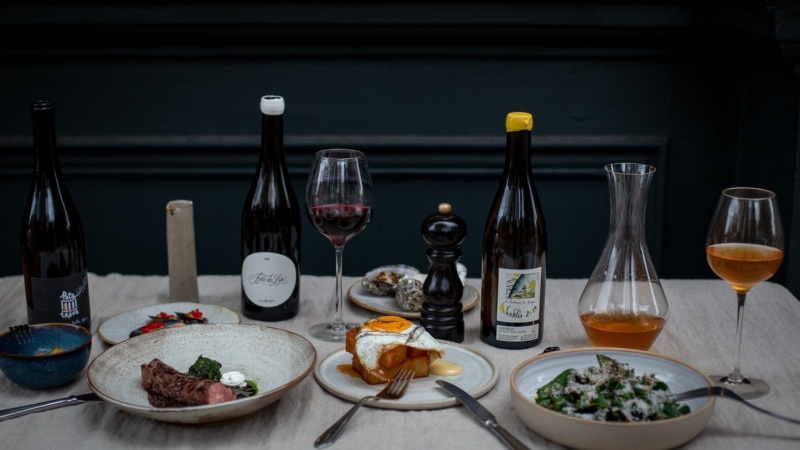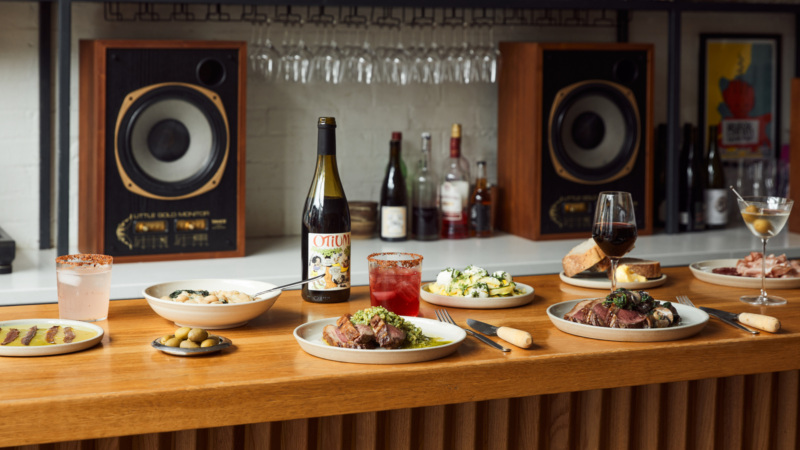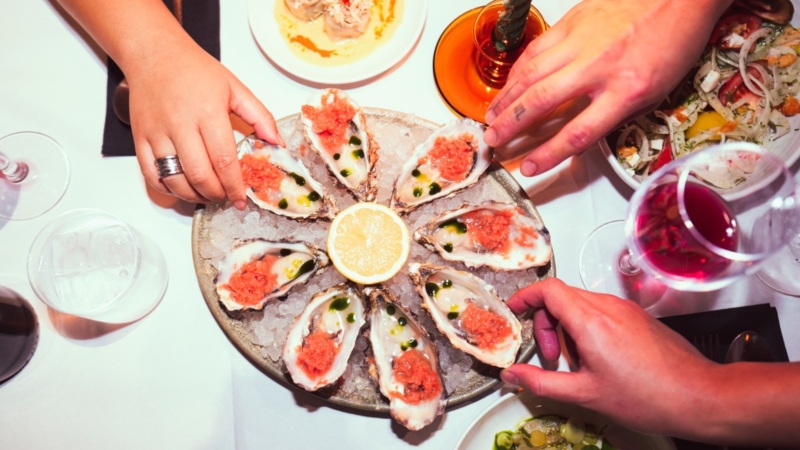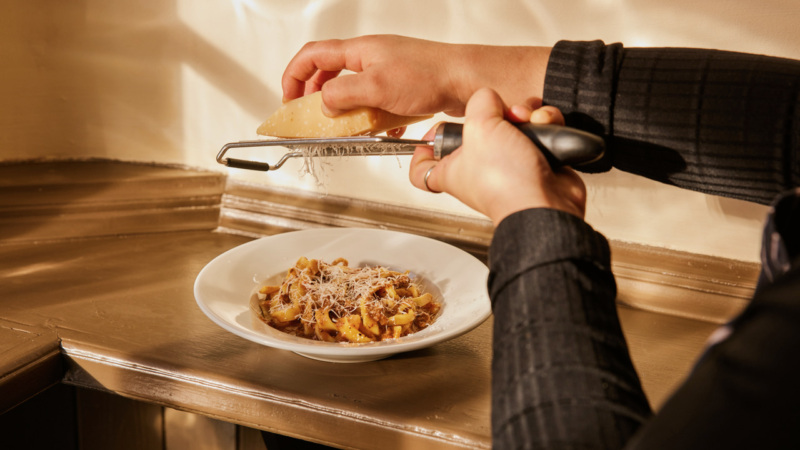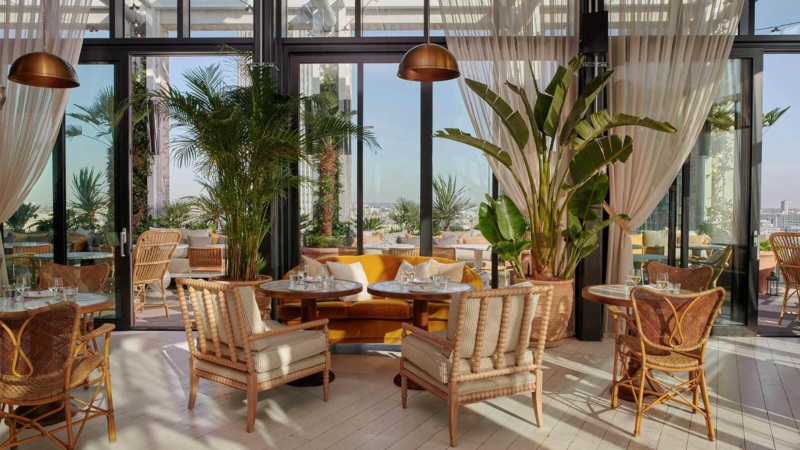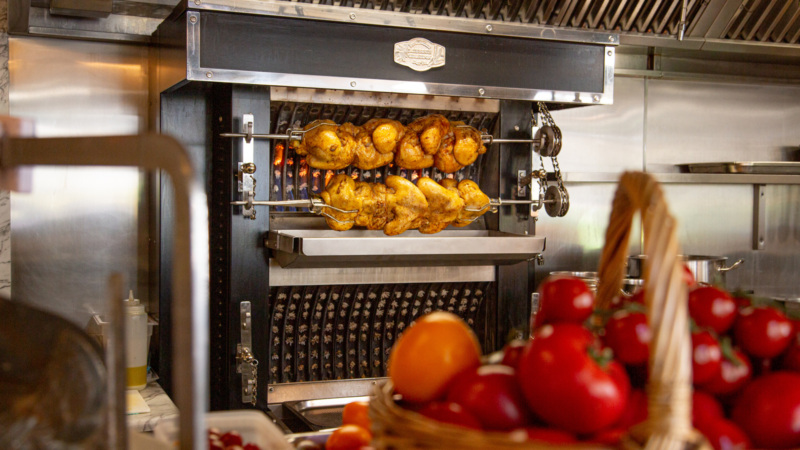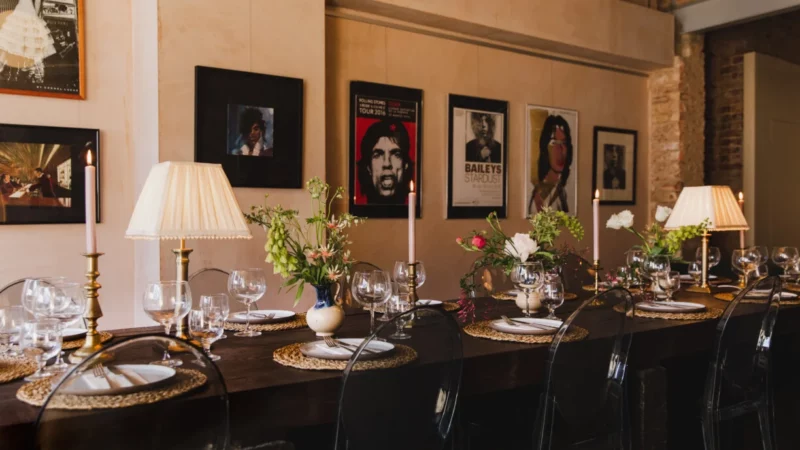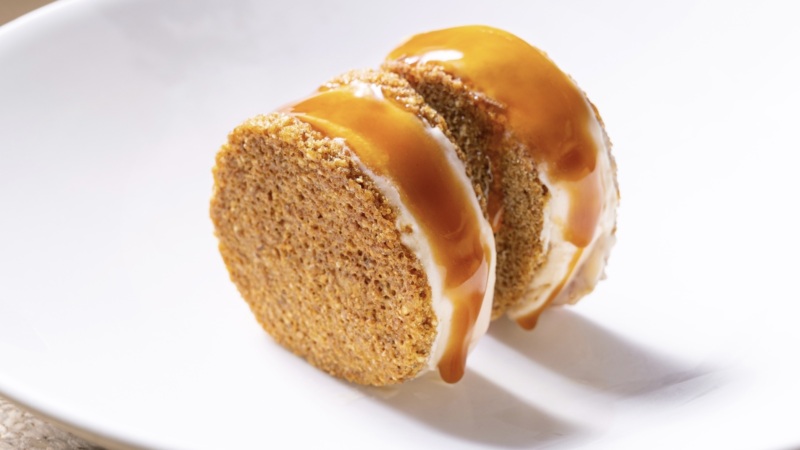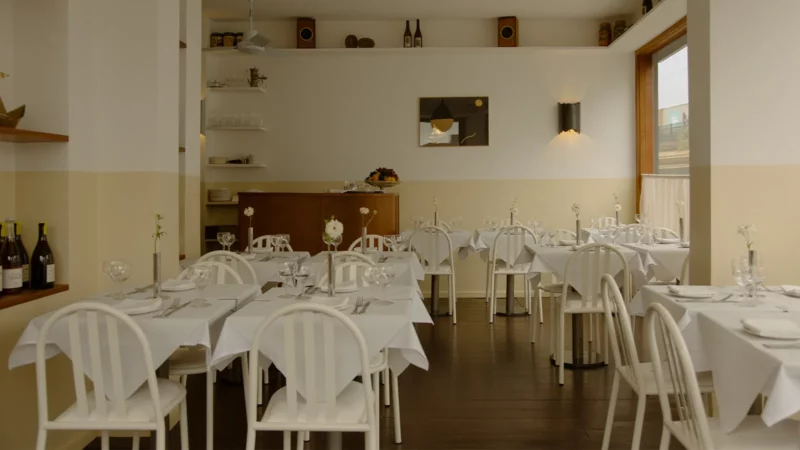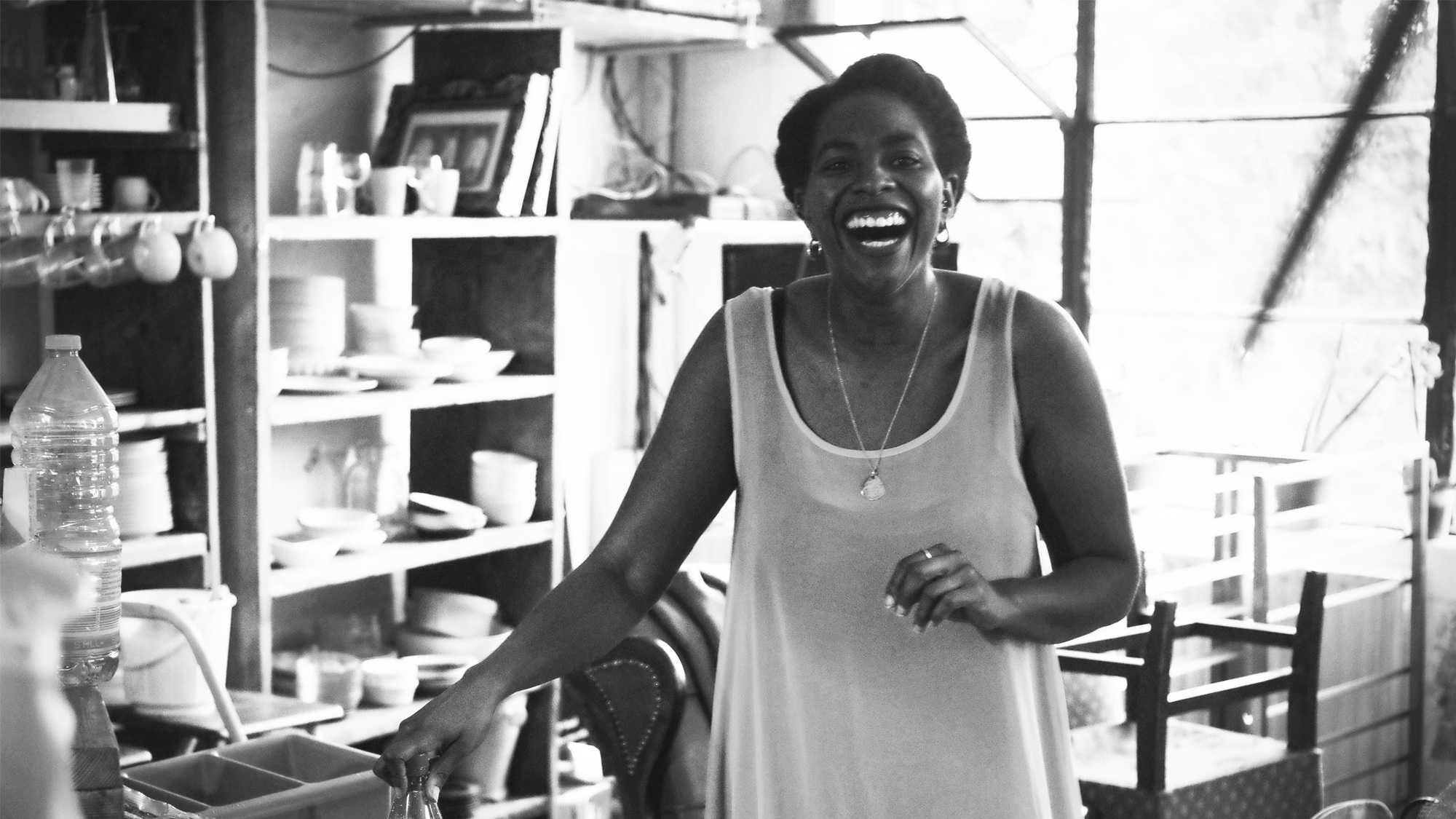
Black Joy, Our Greatest Form of Activism
Marie Mitchell is the chef and co-founder of Island Social Club, a contemporary British Caribbean restaurant and bar that’s popped up across London, most recently in Haggerston. Her words follow.
*****
Earlier this month, as I sat watching a video about five young descendants of Frederick Douglass, the American social reformer and abolitionist, the line “pessimism is a tool of white oppression” struck me.
Though we aren’t in America, the premise of those words works anywhere. I don’t believe that if we all become optimists that all the world’s wrongs will become right, but I do believe in the power of joy — and specifically the celebration and appreciation of Black joy — as one of our greatest forms of activism.
For the last four months, I’ve sought to understand what Black joy means to me personally, and as a chef and writer. As with Blackness, joy means different things to different people. In my work, many Black chefs have to use their heritage to be taken seriously within the culinary world — as if it was our only form of inspiration — rather than the complex histories that shaped our food.
Initially, I chose to focus on my Caribbean heritage in my cooking, rather than my London upbringing, as an opportunity to forge a bond between who I am and where my ancestors came from. The more I delved into my heritage, though, the more I understood how elements of the rich cultures of Africa, India, and China ended up on our plates, our cuisine’s complex evolution reflecting the ancestries that run through our veins. The vastness of what became available when I didn’t have to prescribe to an idea of who I was as a chef — and a Black female one at that — helped to re-centre the way I viewed my identity and Blackness.
Which is to say, the often limited examples of Blackness we see suggest that it is finite, when in fact, the examples are endless. In my own experience, the early challenges I faced in understanding my Blackness became confused with believing I was not ‘Black’ enough, something that continues to linger in me today, laying free to toxic thought processes. What saddens me most is that these parameters were often directly placed around my thinking by those from my own community as I refused to prescribe to what Black should be. Am I mad at those who passed on those scathing judgements? No, for we were all brought up in the same world which told us what being Black was supposed to look like.
Bingeing Issa Rae’s latest season of Insecure in two days — or one, if I’m honest with myself — felt like radical self-care, the show’s rawness feeling too well-timed to be a coincidence. Seeing a character reflected in my own image, fleshed out as complex and misunderstood and not a glaring, one-dimensional stereotype, made me feel whole. This is because being a Black female chef, specifically one of Caribbean heritage, can lead to a space of homogenisation — and as a result, I’ve had to contend with the expectation of what I will deliver, often to criticism if it doesn’t conform. Continuing to experiment and deliver Caribbean food that is lesser known to the wider public brings me exquisite joy. Serving dishes I’ve researched and developed reinforces the deep sense of ownership in my work and identity. Having a guest enjoy it, and seeing them transported to a time or place that reminds them of the mythical place we, as second or third generation immigrants, refer to as home, is priceless.
*****
Relistening to We Are in the Future, a podcast dedicated to Afrofuturism, I was cooking one of my favourite soups and crushing coriander seeds in my pestle and mortar, when Ruby Tandoh’s piece “Your Hands Are Your Greatest Kitchen Utensil” sprang to mind. Listening to a show dedicated to Black culture that was hopeful, I watched my own hands work independently of my mind, a direct reflection of what feeds me, metaphorically and physically. They are a visual representation of my life and journey, working in parallel with the show’s urgency to demonstrate optimism in a time with so little of it.
The soup was one that became the mainstay of my lockdown, its warmth, spice, and vibrancy warming my belly and my soul. It reminded me of Black joy and, more widely, the joy of migrant communities and how the simplest of pleasures in cooking a meal can do more for unity and community than fighting our individual battles.
This joy lives in projects such as Community Comfort by Riaz Phillips, a book that gives space to known and lesser-known chefs of colour who rarely get the opportunity to showcase their work, while raising money for a necessary cause and celebrating the richness of London’s migrant communities. Here, the love and time that goes into each dish is evident, their unique heritages and sense of identity sitting heavily within those pages.
This matters because the culinary world that as depicted by the media is incredibly male-dominated, incredibly white, and often incredibly privileged — one could be mistaken for believing that little else was worthy of recognition, when the reality is anything but. Such projects facilitate and give voice to the change that needs to come from within the restaurant industry, while educating the dining public. To this end, we need to place the same value upon the innovators of minority backgrounds, who are often the pillars of our communities. Their food excites, and the time and dedication they sacrifice to feed our bodies and minds must be reflected in them dictating their own paths, not having white counterparts assume the role of facilitator.
These positive gateways into other cultures lean into shared visions, and opportunities to find ways of how we can relate to one another. The act of breaking bread with your fellow human is a chance to build bridges over the necessary sustenance we all need, something I will continue to champion in my work.
*****
In the aftermath of the murders of George Floyd and Breonna Taylor, and subsequent global protests, June was a humbling learning opportunity for the white community and other non-Black minorities, a time for the amplification of other voices. As the dust settles, I remain cautious and curious about the real work being done. For each black square, how much true allyship continues? We saw the power in working in a unified fashion but what of that continues now, and how are people continuing to show up?
Doing deep and thorough work is hard and relentless, but we cannot pull back. The momentum we saw in June is, at its base, only the beginning of a journey in which silence is no longer acceptable — and it must be unpacked on all levels. The intersections of race, socio-economic status, education and wealth all contribute to the white supremacy that forms the bedrock of the capitalism that defines our existence. Watching the black squares and deluge of content circulating on social media was the moment I pulled back. Seeking out Black joy anaesthetised my own pain and that of others, for the performative nature of June overwhelmed and consumed me in equal measure.
Watching the events of the last few months unfold, I stopped, though not immediately. Why was it this incident that finally made some sit up and react, as if we haven’t been seeing these atrocious acts for years? At first, I was vocal in a way I have never truly allowed myself to be as a Black woman; I was angry, and I was consistent with it.
And then I retreated.
Never before have I felt the necessity and importance of being surrounded by the family gifted to me, whether blood or chosen, with such urgency. The need to absorb them as much as possible to build safe boundaries, where the words unspoken are the ones of solidarity and understanding. The safety of their familiarity but more importantly it’s about the joy they bring, which in the wake of this year feels exceptional.
With the past few months having been filled with unimaginable pain, I have craved the simplest of joys. The steaming of soup, the fragrance of spices, the familiarity of stirring a pot so my mind is free to rest — for food may be my medicine, but cooking is my therapy. It may not sound instantly radical, but existing in a Black body and being joyful is its own form of rebellion.
The retreat of the last few months wasn’t a choice, it was a necessity, one which saw me evaluate and assess the importance of what might appear small, but is in fact wholly fulfilling and enriching. With greater specificity, the joy that I and those in my community can feel in this time is truly radical, for we battle not one pandemic but two, the other more insidious and toxic with us fighting it from the moment we left our mothers and took breath. It sits in our magazines, on our screens, in the books we read, and in the spaces we learn. And so, for the last few months, I’ve felt a greater pull to the untouchable joy that sits within Black people to fill my cup, to make it run over, so I can build the strength necessary to come out in this world and continue the fight.
Marie Mitchell is a chef, writer, and a co-founder of Island Social Club. Follow her on Instagram. Follow Resy, too.

